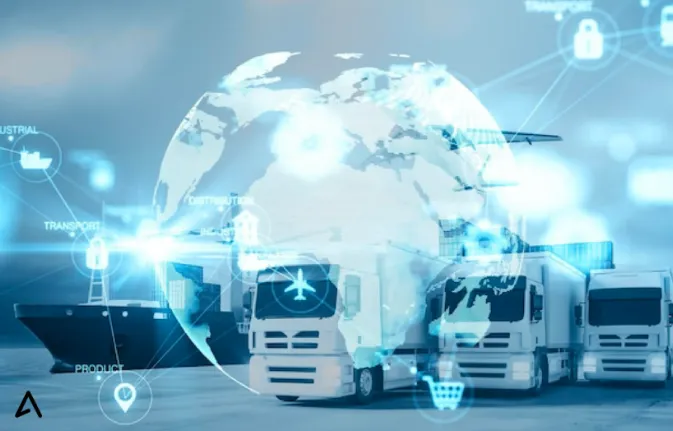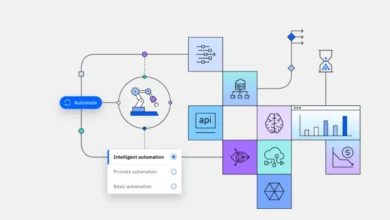Efficient Logistics: How Technology Is Transforming the Trucking Industry

Contents
Introduction to Technology in Trucking
Technology is reshaping the trucking industry at an unprecedented pace. From route optimization to real-time tracking, modern advancements are enhancing the efficiency and reliability of logistics. This technological revolution benefits not only companies but also customers and the environment. For instance, trucking companies in Atlanta are rapidly integrating these technologies to streamline their operations and ensure timely deliveries.
With the rise of digital tools and platforms, the logistics industry has seen a significant transformation. These changes are not restricted to one region but are observed globally, impacting how goods are transported and managed. Companies are now better equipped to handle challenges and improve overall performance. Digital innovation is bridging gaps in the supply chain, enabling more precise management of inventories, shipments, and deliveries.
Advancements in Transportation Management Systems
Transportation Management Systems (TMS) have undergone significant transformations in recent years. These systems now offer advanced functionalities, such as automated dispatch, real-time tracking, and predictive analytics, which streamline operations and reduce costs. By utilizing TMS, companies can optimize their routes, ensure timely deliveries, and enhance overall efficiency. For a deeper understanding of how TMS improves logistics, see this comprehensive guide.
Moreover, TMS enables better communication between different stakeholders in the supply chain. This interconnectedness ensures that everyone, from drivers to dispatchers, is on the same page, reducing errors and improving service levels. The integration of TMS with other digital tools further amplifies its effectiveness, making it an indispensable asset for modern logistics. Additionally, using artificial intelligence within these systems helps forecast demand and manage peak times efficiently.
The Role of IoT in Fleet Management
The Internet of Things (IoT) plays a crucial role in modern fleet management. IoT devices provide real-time data on vehicle performance, fuel consumption, and driver behavior. This information helps companies optimize their fleets, enhance safety, and minimize maintenance costs. By leveraging IoT technology, businesses can monitor their assets more efficiently and make data-driven decisions to improve operations.
For instance, IoT sensors can detect potential issues in a vehicle before they become major problems, allowing for proactive maintenance. This reduces downtime and extends the lifespan of the fleet. Additionally, IoT data can help in training drivers, ensuring that they follow best practices and drive safely. The granularity of data provided by IoT can also support efforts in reducing fuel consumption by identifying and rectifying inefficient driving habits, thus contributing to cost savings and reduced environmental impact.
Data Analytics: Driving Efficiency in Deliveries
Data analytics has become an integral part of the logistics industry. By analyzing various data points, companies can predict delivery times, optimize routes, and manage inventory more effectively. This application of big data ensures timely deliveries and reduces operational costs. A recent study highlighted the benefits of data analytics in logistics, which you can explore here.
Furthermore, data analytics enables companies to identify patterns and trends that were previously unnoticed. This insight can foster more informed decisions, such as adjusting routes based on traffic patterns or managing inventory levels to avoid overstocking or stockouts. The benefits are clear: improved efficiency, reduced costs, and better customer satisfaction. Advanced analytics can also support capacity planning, ensuring that resources are allocated efficiently during peak demand periods.
Sustainability: The New Norm in Logistics
As climate change concerns grow, the trucking industry is adopting sustainable practices. Innovations like electric trucks, alternative fuels, and carbon footprint tracking are becoming standard in logistics. These practices not only align with environmental goals but also improve brand reputation and customer trust.
Sustainability in logistics is not only limited to reducing emissions. It’s also about creating a holistic approach to environmental responsibility. Each aspect of the supply chain can contribute to a greener future, from using recyclable packaging to optimizing delivery routes to minimize fuel consumption. Companies prioritizing sustainability are often seen as industry leaders and attract eco-conscious customers. The emphasis on sustainability also opens up avenues for partnerships and collaborations with other green-tech companies, further enhancing the overall impact.
Adapting to Technological Changes
Embracing technological advancements is paramount for businesses to stay competitive. Companies must invest in training their workforce, upgrading their IT infrastructure, and staying updated with new trends. Adaptation ensures that businesses can leverage technology to improve operational efficiency and customer satisfaction.
It’s also essential for companies to stay agile and be willing to experiment with new technologies. The logistics industry is rapidly evolving, and those who can quickly adapt will have a competitive edge. Strategies like continuous learning and collaboration with tech partners can help businesses stay ahead of the curve. Companies that nurture a culture of innovation and flexibility are better positioned to integrate cutting-edge technologies swiftly and effectively.
Conclusion
The trucking industry’s transformation through technology offers numerous benefits, including enhanced productivity, cost reduction, and environmental sustainability. As technology continues to evolve, logistics companies must stay agile and embrace these changes to thrive in a competitive market. Integrating technological advancements is not a choice but a necessity for modern logistics operations. The future of the industry lies in embracing these innovations and continuously striving for excellence through technological advancement.



